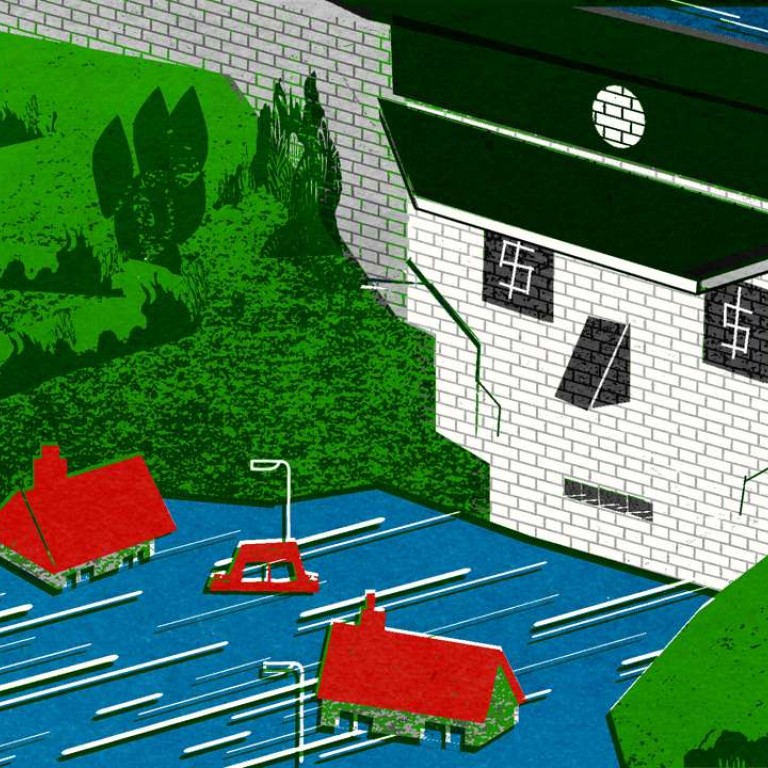
Flood chaos across China: Ill-prepared provinces will have to answer to Beijing
Sonny Lo says local authorities in the mainland have failed in their duty to prevent death and major damage from flooding
The widespread flooding in China is affecting many provinces, from Guangdong (廣東), Hubei (湖北) and Anhui (安徽) to Hebei (河北). Judging by the way in which the central government, local administrations and the military are dealing with the worst flooding since 1998, there are significant features of how President Xi Jinping (習近平) and his subordinates are managing the events.
First and foremost, although the Pearl River flood control authorities warned in March that flooding this year could be as serious as in 1998, when some 3,000 people were killed, local governments in the affected provinces appear to have been ill-prepared. Even though the Office of the State Flood Control and Drought Relief Headquarters echoed the assessment of the Pearl River authorities, it has become apparent that local officials in many cities, including Wuhan (武漢), failed to take sufficient preventive measures against the imminent flooding along the Yangtze River.
As a result, Xi on July 21 made the strongest comment yet on the disaster, saying that the flooding was “very serious”, that local government officials should no longer adopt “a numb mentality” and leave avoiding natural disasters to chance, and that all measures had to be taken to prevent further flooding and protect citizens’ safety.

Death toll from rains hits 164 in China as fourth official suspended over flood response
Xi also mentioned six major measures that must be taken at once by local authorities: one, the implementation of a clear responsibility system; two, the need for scientific prediction of natural disasters; three, the consolidation of infrastructure works like dams to prevent further flooding; fourth, the urgent protection of citizens; fifth, the necessity of joint action by citizens and officials to deal with the floods; and sixth, the imperative of better water construction work after the current disaster.
A day after Xi made the appeals for provincial and local authorities to act promptly, the director of the state flood control authorities Wang Yang echoed his remarks, asserting that local officials must “conquer the numb mentality, relaxed attitude and fear of dealing with disasters”.
Clearly, the central government is unhappy with the way local officials and provincial authorities have been handling the worst floods since 1998, when 130,000 People’s Liberation Army soldiers were deployed.

Later gator: Chinese villagers ‘kill, cook and eat’ one of 92 escapee alligators from flood-hit farm
Compared to the official response to the flood in 1998, the central government this time has been quite calm, mobilising only 20,000 soldiers to cope with the flooding in Wuhan. Although other regions have also seen military mobilisation, the scale appears to be lower than during the 1998 situation.
This response appears to be a central government test for local officials. Some of them have already failed
This more muted response appears to be a central government test for local officials. Some of them have already failed.
At least four officials from Hebei – where the flooding has led to at least 130 deaths, with many more people missing – have been suspended from duty.
Some citizens criticised the disaster as “a man-made” one. The example of Wuhan is staggering. In 1949, there were 127 lakes in the city, but by 2016 only 38 were left, due to land reclamation and development. Although a law governing lake management in 2002 ruled that those who violated the law would be penalised with a fine of 10,000 yuan (HK$11,600) to 50,000 yuan, this penalty failed to deter unscrupulous land developers, who collaborated with corrupt officials to engage in lucrative development deals at the expense of public safety.
Nor did local officials in Wuhan adopt a stringent approach to dealing with the city’s drainage system. It was reported that one former local official responsible for water drainage took a bribe of 1.5 million yuan and manipulated the process of contracting out flood prevention works.

Traumatised villagers in Chinese flood village say authorities failed to warn them of disaster
Xi’s call for remedial construction works after the disaster must now be one of the priorities. His anti-corruption crusade will likely be revived in badly ravaged cities and regions.
As with the 2008 earthquake in Sichuan ( 四川 ), the central government this time responded to the flooding promptly and effectively through the provision of subsidies to provinces and cities that needed urgent assistance. Beijing on June 26 provided Jiangsu (江蘇) with a subsidy of 30 million yuan in light of the fact that a large part of the province’s farmland had been devastated.
And, as with the 2008 earthquake, the official mass media are now unprecedentedly open with reporters going into various disaster regions to cover how the military and police have been rescuing trapped residents. Strikingly, however, both now and in 2008, the media rarely cover how local officials have been reacting to the crisis – a reflection of how the central authorities have remained suspicious of local maladministration.

Flood of doubts: sceptical public questions Three Gorges Dam’s capacity to stop disasters
Overall, the ongoing floods that have been damaging various provinces in the heartland of China reveal not only the swift and strong response from the central government, but also the relatively ill-prepared nature of many local officials.
With the gradual retreat of the floodwaters, the timing for rigorous construction works and flood prevention measures will have to be formulated and implemented. Above all, corrupt and incompetent local officials will surely be purged.
China’s capability of managing natural disasters has one major principle: that the regime’s legitimacy has to be consolidated through swift responses and effective remedial actions, which means that provincial and local authorities will have to adopt the same mentality and approach to coping with sudden crises.
Sonny Lo is head of the department of social sciences at the Education University of Hong Kong

